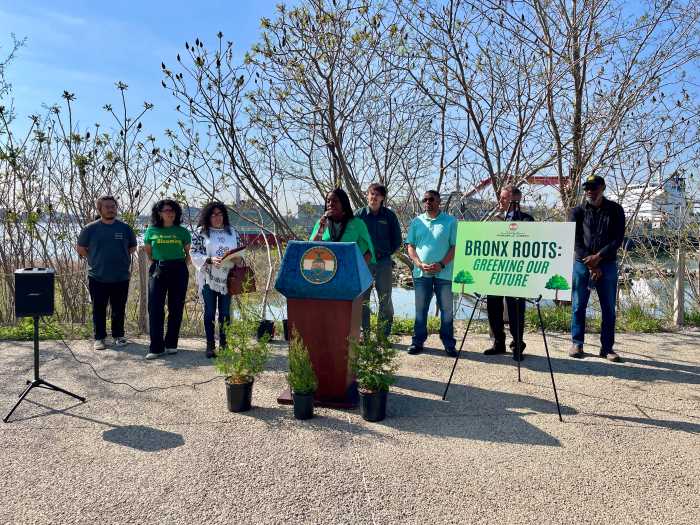With a swift stroke of her pen, Gov. Kathy Hochul has given millions of New Yorkers the opportunity that every productive member of society should have – the right to seek and secure employment without discrimination.
Many will laude the passage of the Clean Slate Act, which automatically seals most misdemeanor conviction records after three years, and most felony conviction records after seven years. And rightfully so, as its effect on an estimated 2.2 million New Yorkers with criminal records – more than 80 percent of whom are Black or Hispanic – is both nuanced and powerful.
But as attorneys who frequently advocate for job applicants with criminal histories, we’re here to argue that the law doesn’t go far enough. Our reasoning for this has three main pillars. First and foremost, the state, and not employers, should serve as the sole arbiter of the penalty paid for a criminal conviction. Second, eliminating this type of discrimination provides simultaneous benefit to our economy, our society, and most importantly, the lives of individuals (and their families) with criminal records. After all, gainful employment has been proven to be a powerful deterrent to future crime. Finally, discrimination against job applicants with criminal histories disproportionately affects people of color, and it serves as yet another penalty for a demographic that already suffers from overpolicing, and undue hardships in the criminal justice system.
There are many ways to examine Clean Slate, but at its core, the law balances the needs of two distinct groups – individuals convicted of crimes and employers.
On one end of the spectrum sits the legal rights of New Yorkers who have paid their debt to society, and want to compete for jobs without discrimination. Underlying this belief is the understanding that the state, not an employer, determines criminal penalties, and when an individual satisfies that penalty – be it prison time, community service or restitution – they should not suffer an additional penalty in the job market. For many years, this discrimination has been embedded in the job market, in ways both subtle and overt, despite New York’s decision that an individual, despite their conviction, was ready for reintegration into society.
In one overt example, we successfully advocated for more than 400,000 Black and Hispanic job applicants who were denied jobs on the 2010 Census. In this case, the federal government, the nation’s largest employer, used inaccurate and incomplete FBI arrest records to arbitrarily deny their employment, in violation of Title VII of the 1964 Civil Rights Act. This landmark settlement forced the Census Bureau to abandon its practice and collaborate with organizational psychologists to develop a system that would better determine whether an applicant’s criminal history actually justified their rejection.
Around the time of that settlement, New York City passed the Fair Chance Act, a law that many believed would level the playing field on this issue. But the 2015 law was but a step in the right direction. It banned employers from asking about criminal convictions during the interview process, but they still had (and have) broad discretion to ask questions, conduct background checks, and deny employment after a conditional job offer was made. In doing so, Fair Chance failed to account for the fact that most employers harbor powerful and instinctive biases against job applicants with criminal histories, and they often link them to undesirable characteristics of the criminal justice system – including violence, deceit, and danger – even if the applicant’s interaction with the criminal justice system had nothing to do with those behaviors or their suitability for employment.
Moreover, Fair Chance perpetuated what was essentially an unfair memory test, as applicants were asked to delve into their distant criminal history and recount inconsequential details, even though employers were conducting background checks. Not surprisingly, applicants frequently forget the minute details found in their background checks, giving employers a legal argument to justify their discrimination.
Also lost in this conversation are the pervasive biases in a criminal justice system that arrests, prosecutes, sentences, and incarcerates Black and Hispanic Americans with an uneven hand.
On this note, more than 97 percent of convictions in New York originate from guilty pleas with prosecutors, who frequently overwhelm minority defendants with multiple and overlapping charges. These “charge stacking” tactics, which are being closely examined by the American Bar Association, force thousands of New Yorkers to reluctantly plead guilty every year, rather than face harsh potential penalties at trial. And many continue to pay an unfair price in the job market, long after they’ve paid their debt to society.
That’s because bias is pervasive in the hiring process, and it’s nearly impossible for employers to free themselves from it. To prove this point, researchers once sent 250 similar Black and White men with fictitious felony drug convictions to apply for entry-level jobs in New York City. Not only was the entire group less likely to get a callback, but Black men received half the number of offers their White counterparts did.
Situations like this happen every day in New York, and it’s time for it to end. That’s why we welcome today’s passage of the Clean Slate Act. But there’s more work to be done. Hundreds of thousands of New Yorkers with criminal records, many of whom have stayed clean for years, are not covered by this law, and for many of them, gainful employment is far and away the most important factor in their rehabilitation process.
While Clean Slate stops short from addressing every person with a record, we applaud it and call on other states to examine this issue more closely.



































